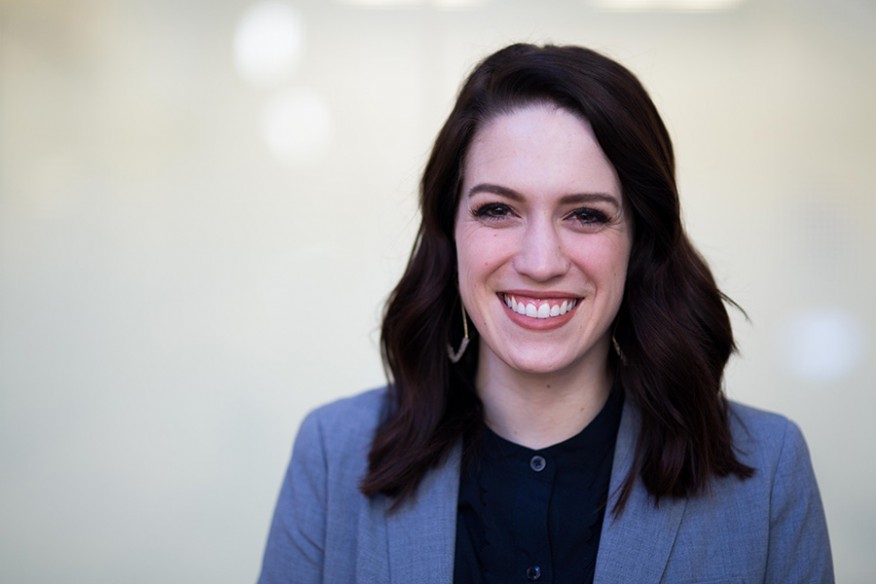-
PhD Candidate:Joint with Developmental Psychology
-
Scholarship:John F. Longres Award in Psychology or Sociology
Kaitlin Paxton Ward grew up in a religious community that encouraged women to stay home and their husbands be the primary breadwinners. Yet Kaitlin’s husband was the one to encourage her to get a PhD. In her MSW program, she was learning about equal opportunities for women. “It made me think about broadening my horizons,” she recalls. “My husband said, ‘You could do a PhD program. You should go for it and do research.’ So I switched to a research emphasis, loved it and decided to get a PhD!
“I knew my undergraduate degree in developmental psychology would marry well with social work,” Kaitlin explains, “and I wanted to get the best research training possible.” U-M’s Joint Program in Social Work and Social Science answered Kaitlin’s need. “Michigan had the reputation and the productivity,” she says. “They could prepare me to do mindful research. It felt like a big leap for me to apply to the number one social work program, but I gave it a shot and it ended up paying off.” Literally so, for Kaitlin received this year’s John F. Longres Award, given annually to a School of Social Work doctoral student whose research focuses on social psychology issues as related to social work practice. “I can’t express how grateful I am to have received this award, “Kaitlin says. “Those who bestowed it on me put a lot of faith in me and a lot of trust in my research and what I plan to do.”
Kaitlin’s research deals with parents’ use of corporal punishment. She works with Professors Shawna Lee and Andrew Grogan-Kaylor at the School of Social Work and Professor Brenda Volling in Psychology. “I think parents have good intentions and want to do the best for their kids,” Kaitlin says. “I hope I can introduce them to more helpful parenting techniques.” Kaitlin has already contributed to seven studies during her time at U-M, and she will present her research this spring at the International Convention of Psychological Science in Paris. “I wouldn’t be able to go to Paris to present my research without the Longres Award,” she says. “I want to disseminate my research and spark an international conversation about supporting parents. The Longres Award will help make that happen.”
Says Kaitlin, “Dr. Longres invested his gift toward what he thought was important — the betterment of students and the betterment of research. I appreciate that I was selected to receive this support to benefit families and to help make the world better. I look forward to when I am a professional and have and the ability to do the same for students. It has meant so much to me.”
